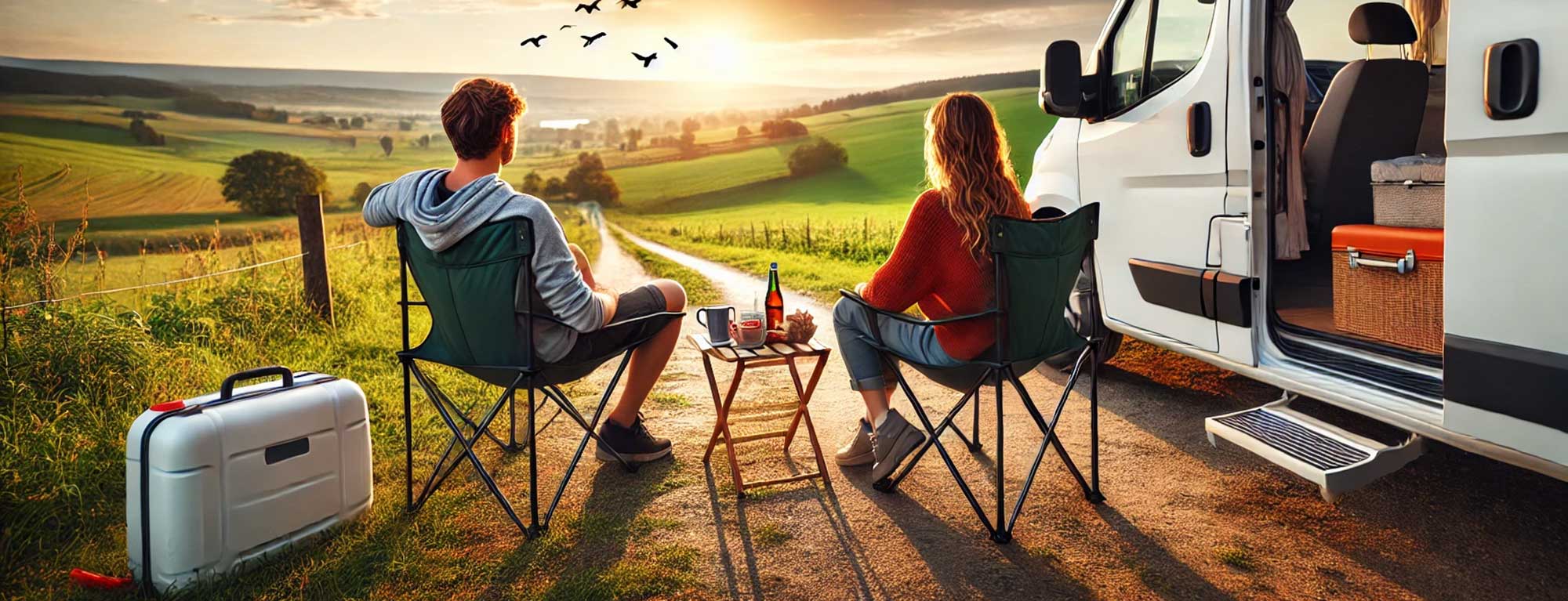

There’s something deeply liberating about rolling off the ferry, maps in hand, heading for the Alps, the Med, or a forest clearing somewhere in the middle of France. Travelling Europe in a campervan is freedom at its finest. But it’s not just about packing tea bags and making sure the gas hob works. There are a few hoops to jump through first; some bureaucratic, some common sense, and some that only become obvious after things have gone wrong.
European countries don’t all play by the same rules, so having the right gear onboard is vital. Authorities aren’t always forgiving, especially when you’re driving a UK-registered vehicle.
Just imagine - someone pulls over on a rural Spanish road, only to watch for the warning triangle is buried behind five days of dirty laundry. Not ideal when the Guardia Civil are waiting.

It’s no longer a case of breezing through with just a passport. Post-Brexit travel has brought in time limits and new documents.
One couple got caught short in Croatia when they realised their 90 days had just ticked over. Border control weren’t exactly offering hugs and biscuits.
Driving on the right, unfamiliar signs, and rules that vary by the region can all catch you out. And let’s not even talk about those cobbled town centres designed for donkeys, not Ducatos.
Ever tried reversing a 6m camper through a medieval archway with traffic piling up behind you? Somebody has, and they still break into a sweat thinking about it.
Standard UK policies don’t always offer the full protection you may need abroad. Some provide third-party only once you leave the UK. That’s not much use if you’re stranded in Slovenia with a cracked windscreen and a ruined holiday.
It’s better to be covered than to fork out thousands getting your camper towed back to the UK from a Swiss motorway layby.
Spontaneity is great. But knowing where to fill with gas or finding out your fridge only runs on UK-regulated appliances isn’t exactly a laugh mid-trip.
You don’t need to be fluent in Dutch or Croatian, but a few phrases can go a long way. It also helps to be polite, locals will be far more helpful if you try.
One campervanner ended up having wine with a French farmer because they politely asked if they could park near his vineyard. Now that’s a layby worth remembering.
European campervan travel is a dream, but it pays to prepare. Pack the right kit. Know your limits. Drive sensibly. And make sure you’ve got proper cover in case things go sideways.
If you're about to set off or just planning the adventure, now is the perfect time to get a quote and make sure you're fully protected.